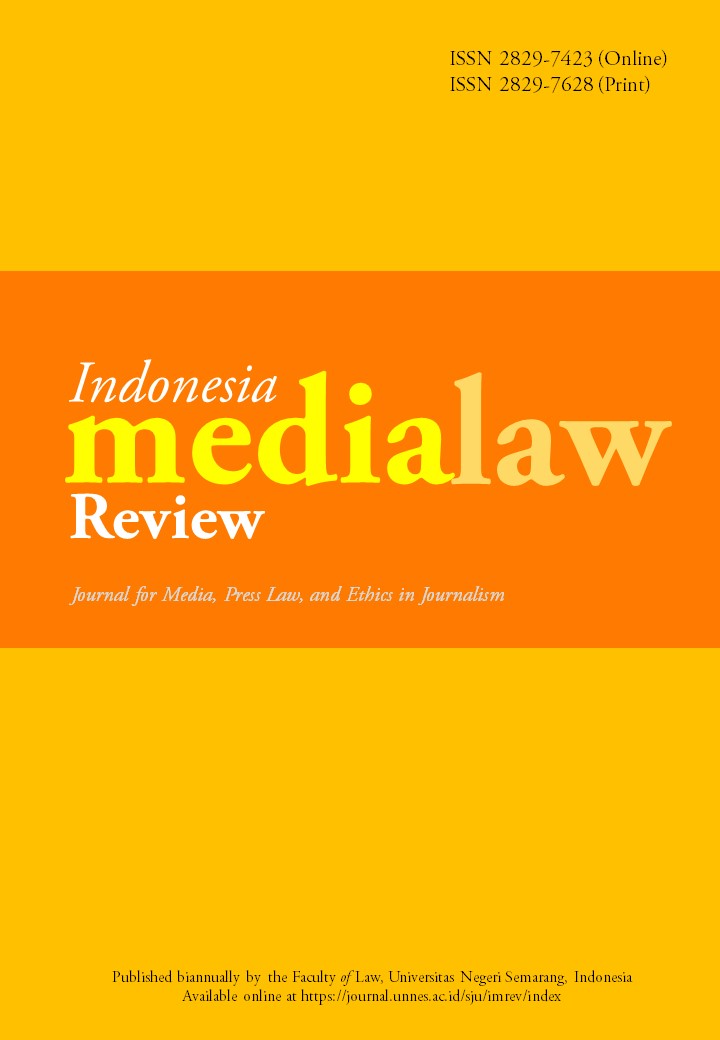Media Under the Law: Press Freedom Challenges in Indonesia
Main Article Content
Abstract
Press freedom in Indonesia is a dynamic landscape influenced by intricate legal frameworks and socio-political dynamics. This paper delves into the multifaceted challenges encountered by the media within the bounds of these legal structures. Despite constitutional guarantees enshrining freedom of expression and press freedom, the practical implementation of these rights is constrained by laws such as the Electronic Information and Transactions Law (ITE Law), Broadcasting Law, and Press Law. While ostensibly designed to regulate media conduct, these laws have been criticized for their potential to stifle dissent and curb journalistic freedom. Moreover, journalists and media organizations face threats, harassment, and violence, particularly when reporting on sensitive issues like corruption and human rights abuses. Through an analysis of case studies, this paper illustrates the real-world implications of these challenges, providing concrete examples of legal harassment, censorship, and attacks on press freedom. However, amidst these challenges lie opportunities for reform. Potential avenues include legal advocacy, capacity-building initiatives, and the engagement of civil society and international organizations in upholding media freedom. By exploring these challenges and opportunities, this paper seeks to contribute to a deeper understanding of the complexities surrounding press freedom in Indonesia. It underscores the importance of safeguarding press freedom as a cornerstone of democracy and civic engagement, calling for concerted efforts to address legal constraints and uphold the rights of journalists and media professionals.
Article Details

This work is licensed under a Creative Commons Attribution-ShareAlike 4.0 International License.
